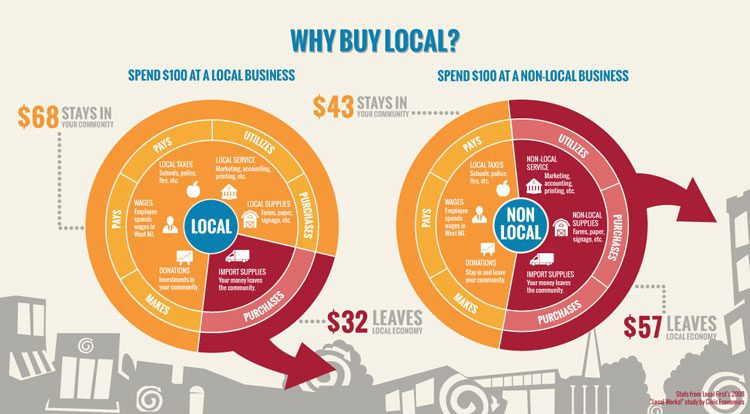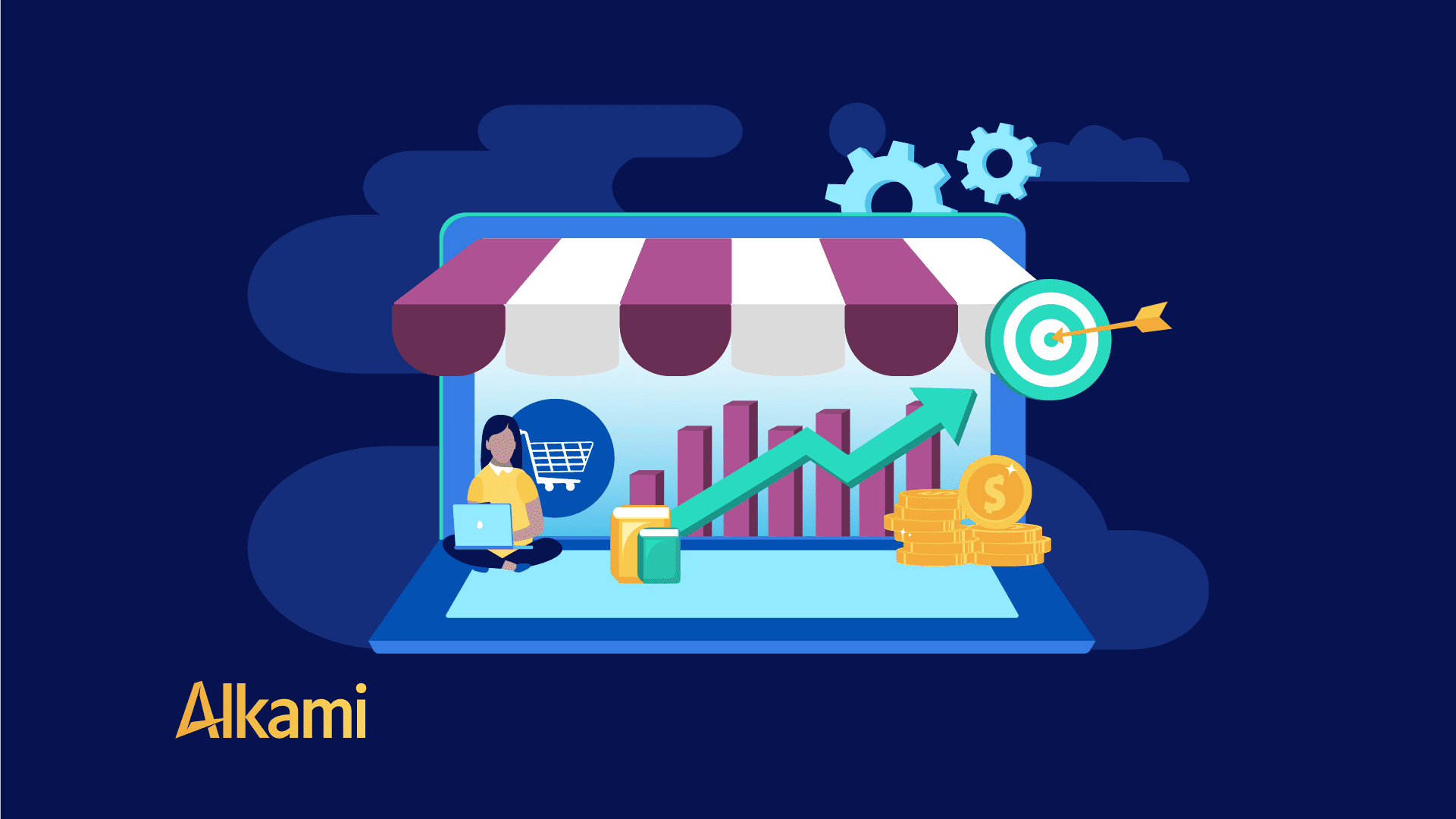Taking a bird’s eye view of the United States’ economy, there are over 32.5 million small businesses, which account for 99.9% of all U.S. businesses (SBA, 2021). As pillars of their communities, small businesses employed over 61.2 million people in 2021, which accounted “for two-thirds of net job growth and 44% of U.S. economic activity” (MIT, 2021).
As main streets lined with small businesses diminish in towns with the rise of big-box stores, a new trend is surging across the nation – Small Business Saturday, the Saturday after Thanksgiving. In the years following the annual shopping holiday started by American Express in 2010, consumers have continued to “Shop Small” throughout the year.

Small businesses are the backbone of our nation and support their communities by developing a local identity, participating in events and volunteer work, fostering economic growth, contributing to environmental sustainability, facilitating job creation, and inspiring entrepreneurship and healthy competition.
As the COVID-19 pandemic ravaged the world, small businesses struggled to keep their doors open; 41.3% of businesses surveyed reported a temporary closure (PNAS, 2021). With deep ties to their communities, Small Medium Businesses (SMBs) turned to their local financial institutions (FIs) for help with the Paycheck Protection Plan (PPP). In fact, “60% of all PPP loans were issued by community banks” (ICBA, 2021). As SMBs rebuild their operations, FIs need to be asking themselves how they can better support SMBs for years to come.
Without the right financial tools, entrepreneurs experience difficulty launching and growing their businesses. Business owners are focused on running their operations. They cannot afford to bank with an FI that has time-intensive processes. SMBs need a business banking platform that is intuitive, convenient, and fast. Traditional FIs cannot deliver on user expectations without evolving their business programs, causing SMBs to turn to fintechs for their banking needs.
According to EY, “66% of SMBs choose ‘range of functionality and features’ as the top motive for using fintechs.” To combat this loss in market penetration, traditional FIs must offer a full suite of digital business banking products and compete on experience.
On the Alkami Platform, for instance, FIs can start new relationships by seamlessly onboarding users for business accounts, credit cards, and unsecured loans. Once approved, FIs can continue growing the banking relationship by supporting users with an online business banking platform.
In digital banking, business owners should be able to leverage a variety of tools across – payments, reporting, and automated billing. The right platform can facilitate same-day ACH origination and wire transactions while automating fraud prevention monitoring on all ACH transfers entering and exiting business accounts. Businesses can then streamline billing processes, eliminate human errors, and provide real-time account analysis with deeply integrated bill pay.
By empowering business owners with the right tools to achieve success, FIs can reinvest in communities and accelerate economic growth. All it takes is the right digital banking platform.
